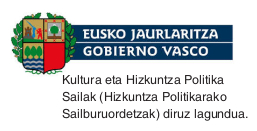Porto Alegreko (Brasil) aurrekontu parte-hartzailea: hirugarren bidea, hirugarren mundua?
Abstract
Over the last fifteen years, Brazil, especially the city of Porto Alegre, has become a strong point of reference for researchers of participatory democracy but that has not always been the case. In using the words of a petista mayor of Porto Alegre, up to now, the only thing that the revolutionary experiences that have been happened have done in the very end —despite the fact that they were aimed at lowering social differences at the onset— has been to achieve a world of plenty for a few in exchange for a world with a little for everyone”. In his opinion, the State has not improved, democracy has not deepened, not has political participation. Citizens’ awareness has not gone up and taking it to be a societal link has not been accepted. Oppression has not ended nor have selfishness, racism, and sexism. Despite their being based on ideal principles, those revolutions have failed to achieve their goals. Our question is, over the last twenty years, have the new formulas for political participation that have come our way via Latin America been to avoid social and political conflict or to re-formulate the conflict?Downloads
Download data is not yet available.
License
Copyright (c) 2005 Uztaro

This work is licensed under a Creative Commons Attribution-NonCommercial-ShareAlike 4.0 International License.
Downloads
Published
2005-07-27
How to Cite
Barcena Hinojal, I. (2005). Porto Alegreko (Brasil) aurrekontu parte-hartzailea: hirugarren bidea, hirugarren mundua?. Uztaro. Giza Eta Gizarte-Zientzien Aldizkaria, (53), 99–117. Retrieved from https://aldizkariak.ueu.eus/index.php/uztaro/article/view/4170
















